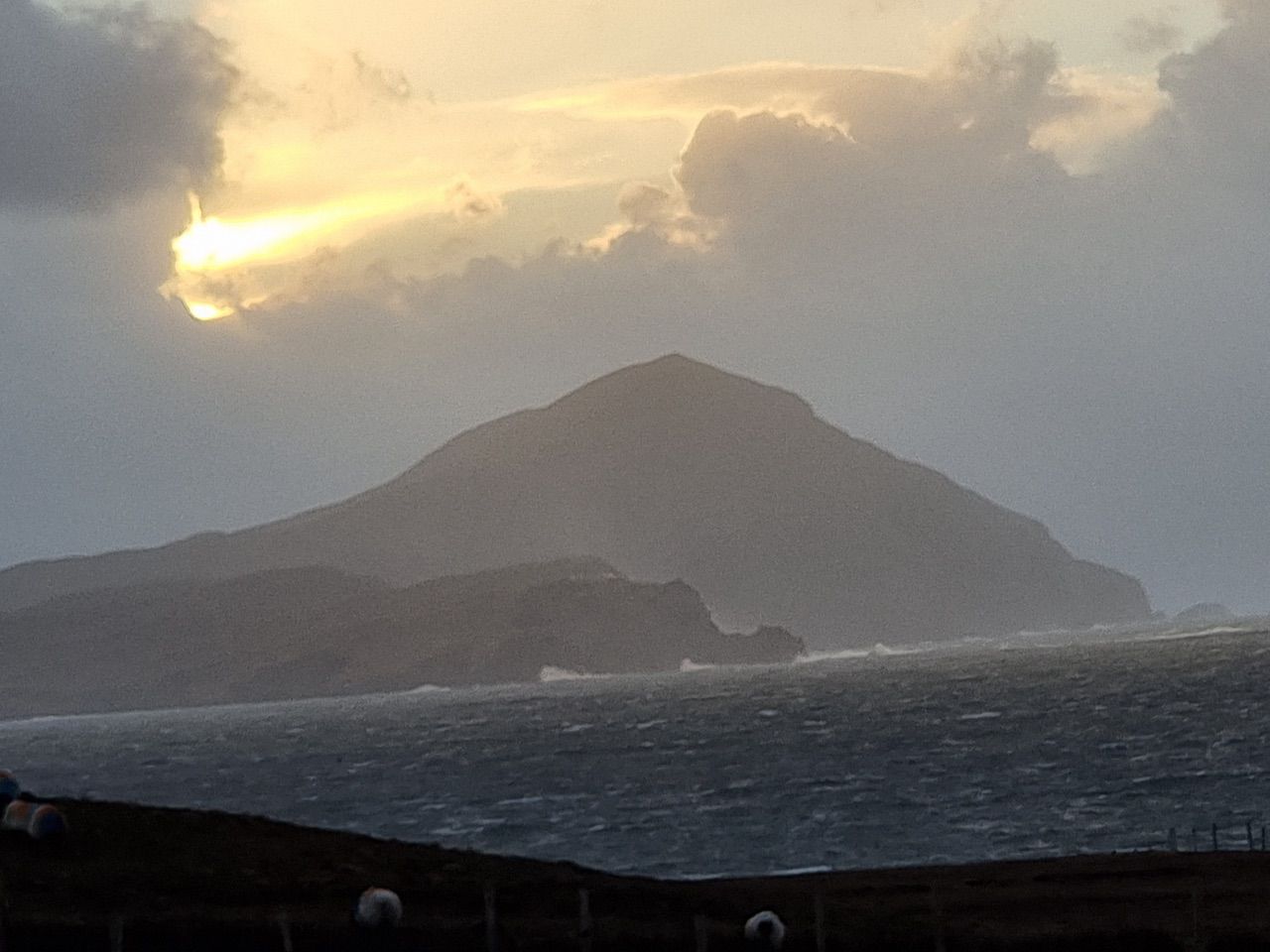Plex: 21 December 2022
OGM Sense Doing, Groupthink vs Collective Intelligence, StigMastodon, Was 2022 the year the world changed, Garden-ing with Charles.

Happy Solstice!
The Biweekly Plex Dispatch is an inter-community newspaper published by Collective Sense Commons on first and third Wednesdays of each month. Price per issue: 1 USD, or your choice of amount (even zero).
In This Issue
- OGM Sense Doing (Peter Kaminski)
- Groupthink vs Collective Intelligence (Ken Homer)
- StigMastodon (Brad deGraf)
- Was 2022 the year the world changed? (Part I) (Hank Kune)
- Garden-ing with Charles (Charles Blass)
OGM Sense Doing
by Peter Kaminski
The OGM mailing list (signup form for closed Google Group) crackled with activity the past two weeks, nearing 300 emails posted.
Some of the discussion (COVID-19, Twitter Files, among others) pushed the group into a meta discussion about how we know what we know, and what Open Global Mind really is. Join the mailing list at the link above, if you'd like to join the conversations and read the archives there.
OGM has several offshoot projects already (including Fellowship of the Link, Free Jerry's Brain, and others, depending how you count). A new one, currently called “Sense Doing” may be forming, around the practice of, or perhaps practical, sensemaking. Join the SenseDoing channel (CSC Mattermost) for the latest discussion and documents-in-draft.
Some framing for different types of participants, to know about each other and understand why the conversation my not always pertain to them (collated by Bentley Davis in the SenseDoing channel):
- People interested in sensemaking about a specific topic or event but who will probably not be interested in other topics;
- People interested in volunteering on the meta tasks of the SenseDoing project itself, such as IT tools for the group;
- People interested in sensemaking methods and want to practice, design, document, and/or test these methods.
Quick take by Jack Park: My comments for now [on] the domain of “sense doing”; based on a lively FJB zoom, I can see the potential for some sort of new motion taking roots. We talked about the limitations of existing platforms such as email, Mattermost, and so forth; we talked about enhancements to Zoom - or Jitsi, etc - in the name of improving collaborative opportunities, and we talked about mechanisms for building on those platforms, and on TheBrain, in, to use Jerry's term, a “seamful” way of navigation among platforms.
Groupthink vs Collective Intelligence
Which is Better for Your Organization?
by Ken Homer
©2018 Ken Homer. Reprinted by permission.
A few years ago, I was talking with a colleague when she asked what the focus of my work is. I mentioned that part of my focus is helping groups create the conditions for the emergence of collective intelligence (CIQ). She caught me off guard when she asked, “Isn’t collective intelligence just groupthink?” I didn’t have a good answer at the time, and I decided to work up a more robust way of articulating why CIQ is better than groupthink.
The definition I use for collective intelligence is: Connecting people and computers in ways that broaden their knowledge, enable them to cope with high levels of complexity, and help them to make better decisions together than they if they acted alone.
Wikipedia defines Groupthink as: “a psychological phenomenon that occurs within a group of people in which the desire for harmony or conformity in the group results in an irrational or dysfunctional decision-making outcome. Group members try to minimize conflict and reach a consensus decision without critical evaluation of alternative viewpoints by actively suppressing dissenting viewpoints, and by isolating themselves from outside influences.”
I thought a side-by-side comparison would be useful:
| Groupthink | Collective Intelligence |
|---|---|
| Power is consolidated at the top | Power is distributed throughout the network |
| Leaders are not to be questioned | Leaders actively solicit dissenting opinions |
| People defer to a single leader | Leadership is a shared responsibility |
| Dissent gets you marginalized or ostracized | Dissenting views are fodder for learning |
| Assumptions go unexamined | Assumptions are continually questioned |
| Only “qualified” people can contribute | All stakeholders are invited to contribute |
| To admit to making a mistake is to fail | Mistakes are valued as part of learning |
| Drive for conformity fosters oversimplification and devalues diverse perspectives | Desire to understand complexity engages and synthesizes diverse perspectives |
| Complexity gets reduced to sound-bites and slogans which can lead to dehumanization | Multiple intelligences are engaged to reach deep and nuanced understanding |
| Opinions and/or evidence contrary to official position is dismissed as being biased or fake | Positions and opinions continually revised based on new information and evidence |
| The quick and eloquent dominate conversations | Those who need time to think are given the opportunity to formulate their positions |
| Emotions of anger and fear dominate and are used to intimidate and manipulate | Anger and fear are carefully explored to mitigate their corrosive effects |
| Kindness, empathy, and compassion are seen as signs of weakness | Kindness, empathy, and compassion are seen as integral to the group’s success |
| Low tolerance for discomfort – the need to move to action overcomes prudence – often with poor results | High tolerance for discomfort – people sit with ambiguity and difficult emotions until a way forward is found |
How does this list strike you? What would you add or change in it?
StigMastodon
by Brad deGraf
I realized we at NooNet have some useful tools for Mastodon migration, so we polished it enough to offer it to others.
Imho it’s a lot better than anything else out there but I’m biased. It makes it easy to populate a set of high quality follows on a broad range of topics.
Here’s the link https://stigmastodon.com/
(Apologies it's Gmail login only for the moment. More coming)
Please try it out and critique it on CSC Mattermost, in .
There’s also a demo video.
Was 2022 the year the world changed? (Part I)
by Hank Kune

At the end of this unusual year, my head is full of questions.
That’s a good thing, because I still believe that good questions are better than bad answers. And questions like I pose in the title of this short piece are very prone to easy, and often wrong, answers.
As has often been noted, the quality of an answer depends on the quality of the questions asked.
I invite us to pause and consider the questions we have been asking during the past months. And the answers we are getting.
What questions are we asking now? Are we asking about next year?
Are there other questions we could be asking?
If the state of the world anno 2022 is a result of the questions people asked in the past, what questions should we be asking now?
Are we still asking Jaron Lanier’s iconic question, “Who owns the future?”
Or Kevin Kelly’s question, “What does technology want?”
It’s nearly the end of the year, and I’m busy with questions. Many are questions about tomorrow, many are also questions about yesterday. Some of mine are:
Does the Metaverse have roads? Traffic protocols? Rules of engagement?
Who will teach us how to navigate there?
What does the future want? What is it asking us?
What are the futures of cities of the future? The futures of sustainability?
What kind of knowledge and skills are needed to safely reach Midcentury?
What collective stories, concepts, myths will we need to safely arrive at 2300?
I am writing now while on a personal winter retreat, on the far shores of Europe, on west coast of Ireland, on the shortest day of the year.
With the holidays of Hanukkah and Christmas coinciding, both celebrations of giving light to the world, I am glad that there are still people who are able to light candles instead of cursing the darkness.
Today the sun ‘stands still’, however metaphorically, and then inches on towards more light.
Be happy with your questions, and the New Year to come.
[to be continued]
by charles blass
garden of now: NAO | Common Sensemakers | StigMastadon | The Platform DAO | LexClinic | Folk
garden of gardens: cb | Wisdom Flow | Wise Data | Community Wisdom Gardening | digital garden
<^>
“all the hoopla about so-called #artificialintelligence is funny bc it’s all #artificial. there is no agreed definition or general unified theory of #intelligence. it’s not really a thing, it’s a made-up blob a lot of people poke at and think they know something about. #fakenews”
other potential misinfo deep in the roots (and future) of AI (courtesy Gyuri Lajos)
+ i’ve been reeling from watching these three amazing must-hear and extremely timely talks, absolutely critical for today and tomorrow, from a quarter century ago
Andy Tudhope (cofounder-steward of Kernel) sums it up wonderfully:
“As we take some time for rest and reflection, I'd love to double click on this incredible gem
Terry talks about trust
Stewart steers us into wisdom
Jaron enjoins us to connect (and be more like cuttlefish)
You won't find more entertaining truths anywhere else”
in the face of such a firehose of exponentially spiraling crap, i’m encouraged to see George Por’s project co-evolving:
“Emancipatory Use of AI-Powered Collective Intelligence & Wisdom”
<^>
this recent show i put together is a labor of true love
particularly the collage in part 4, for my friend the great Greg Tate who passed away a year ago, coinciding with the 80th anniversary of Jimi Hendrix and the release of an interview Greg gave five years ago on the subject of Hendrix; ie the perfect storm
here’s Greg’s last published piece, “Afropessimism and Its Discontents: A guide for the perplexed, the puzzled, and the politically confused.” (The Nation, Sept. 2021)
<^>
in case you didn’t see, Ready-ing the Soil with Nora Bateson and Tom Atlee (Oct. 2022)
further, Tom’s Co-intelligence Institute has a new website.
<^>
water
Thank you for reading! Next edition will be published on 4 January 2023. Email Pete with suggested submissions.
Many thanks to Charles Blass, Brad deGraf, Ken Homer, Hank Kune, and Jack Park for their contributions to this issue.